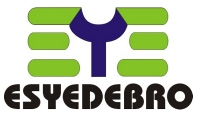PLASTERS AND FINISH PLASTERS
Gypsum is naturally-occurring mineral composed of calcium sulphate crystallised with water – two molecules of water for each molecule of calcium sulphate – and is thus known as calcium sulphate dihydrate.
Gypsum plaster is an industrial product in powder form obtained by the dehydration and grinding of the natural stone; it is composed of several anhydrous and/or semi-hydrated phases of the calcium sulphate-water element and which, when mixed with water, hardens via a physical-chemical process called setting.
The product in a plastic state formed by the mixture of plaster and water is called plaster paste.
The term finish plaster is used to designate a semi-hydrated plaster of particular purity, whiteness and fineness.
The principal applications of plasters in construction are homogeneous coatings although they can also be applied in pastes for masonry joints and as auxiliary conglomerates for construction materials.
Plaster is applied to a surface by means of a kneaded mixture of plaster and water.




